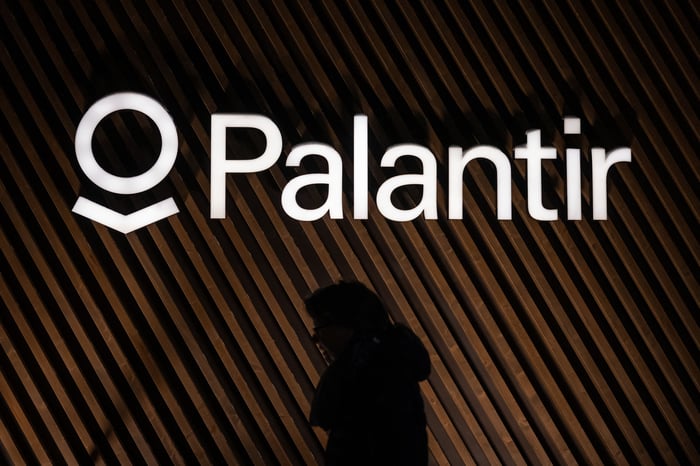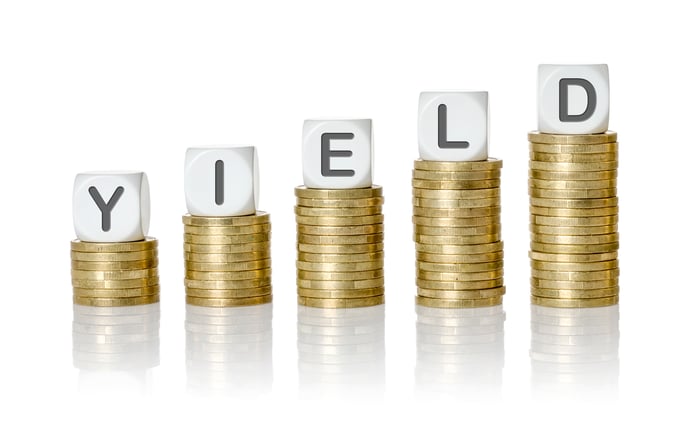3 Things to Know About Palantir (PLTR) Before It Reports Q2 Earnings
Key Points
Palantir's Artificial Intelligence Platform is changing the way businesses and governments operate.
The company is growing quickly but sports an outsized valuation.
A slowdown in growth could have an impact on the Palantir stock price.
Perhaps the most interesting stock to buy in the market today is Palantir Technologies (NASDAQ: PLTR). The company, which is using its artificial intelligence (AI) platforms to completely alter how governments and commercial businesses operate, is up roughly 480% in the last year alone. So far in 2025, the stock is up almost 110%.
Along with that remarkable run-up is a story of obscenely high valuation. Investors are betting big on Palantir to the tune of some rarely seen valuations, such as a price-to-earnings ratio (P/E) nearing 700 and a forward P/E of 270.
Where to invest $1,000 right now? Our analyst team just revealed what they believe are the 10 best stocks to buy right now. Learn More »
Palantir has its second-quarter earnings call scheduled on Aug. 4, after the market's closing bell. If it can maintain its growth momentum, its stock will continue to soar. However, a slowdown in growth could be devastating and let the air out of the Palantir balloon.
Here's what investors should be watching for as the company prepares its Q2 report.

Image source: Palantir Technologies.
Palantir's growth numbers
Palantir is seeing serious growth since it unveiled its Artificial Intelligence Platform (AIP) in the spring of 2023. AIP uses generative AI to allow users to input commands and lengthy prompts into Palantir's powerful network in order to get real-time insights and predict the outcomes of events.
For government users of Palantir's Gotham platform, it's now much easier to command Palantir to tap into satellite networks to determine where opposing military assets are located, predict the results of operations, make recommendations, and offer insights as real-time battlefield situations evolve. Outside of the military aspect, Palantir's platform will be helping to optimize and orchestrate workflows so users can make better decisions throughout the government.
Commercial users of Palantir's Foundry platform can use AIP to help them manage supply chains, optimize operations, crunch healthcare data, and reduce manufacturing costs.
The company is seeing rapid growth in both platforms. While Palantir has long been recognized as a key government contractor, its commercial contracts in the first quarter were up 33% from a year ago, reaching $397 million. Much of that growth came from U.S.-based clients, where revenue jumped 71% from a year ago to reach $255 million. Government revenue was up a whopping 45% on a year-over-year basis to $487 million, with the lion's share ($373 million) coming from U.S. government contracts.
That's leaving Palantir flush with cash. The company ended the first quarter with $370 million in adjusted free cash flow, up from $149 million a year ago, and $5.4 billion in cash and cash equivalents with zero debt.
Key metrics to consider on Aug. 4
While Palantir's growth numbers are impressive, it's hard to say that the company is fairly valued today. Any company with a P/E ratio over 600 has far overextended its fair value -- and that's OK if you believe, as I do, that Palantir is a transformative company with a true value that still hasn't been recognized. But that belief isn't going to protect you if Palantir disappoints investors when it reports its Q2 earnings.
How would that happen? There are a few metrics I'll be looking at.
Customer count: Palantir's commercial customer count grew by 46% in the last year and by 9% on a quarterly basis. It needs to keep that momentum going by signing some big deals. In the first quarter, Palantir inked 139 deals of at least $1 million, and 31 of those were worth more than $10 million.
Revenue growth: Palantir needs to keep the money coming in. Remember, commercial work rose 33% on a year-over-year basis in the first quarter, and government work was up 45%. A slowdown would be impactful to the Palantir stock price. For the record, Palantir issued guidance for second-quarter revenue in a range of $934 million and $938 million. The midpoint of that would be a 47% overall increase from a year ago. That's a big number, but I think it's achievable.
Remaining performance obligations (RPO): This is the backlog -- the amount of revenue that Palantir has locked in by contracts it signed with government and commercial clients, but the work hasn't been delivered or paid for yet. Palantir's backlog at the end of the first quarter was $1.9 billion and has been steadily growing over the last two years.
| Quarter | Total RPO |
|---|---|
| Q1 2023 | $936 million |
| Q2 2023 | $968 million |
| Q3 2023 | $988 million |
| Q4 2023 | $1.24 billion |
| Q1 2024 | $1.3 billion |
| Q2 2024 | $1.37 billion |
| Q3 2024 | $1.57 billion |
| Q4 2024 | $1.73 billion |
| Q1 2025 | $1.9 billion |
Source: Palantir Technologies
Palantir's backlog is accelerating, and the company needs to continue to grow its RPO at a decent clip. Anything below $2.05 billion will be a red flag, and anything above $2.15 billion will be a huge signal that Palantir's growth story is still cooking.
How to invest in Palantir today
I'm an unabashed fan of Palantir, but I'm not going to be adding to my position this week. If you're looking to invest, I suggest a dollar-cost averaging strategy that will protect you from volatility if the stock drops but will still give you some benefits should the stock continue to show power.
Regardless of how Palantir does in its report, I'm holding the stock because I believe that it will continue to deliver -- despite its steep valuation and high expectations from Wall Street.
Should you invest $1,000 in Palantir Technologies right now?
Before you buy stock in Palantir Technologies, consider this:
The Motley Fool Stock Advisor analyst team just identified what they believe are the 10 best stocks for investors to buy now… and Palantir Technologies wasn’t one of them. The 10 stocks that made the cut could produce monster returns in the coming years.
Consider when Netflix made this list on December 17, 2004... if you invested $1,000 at the time of our recommendation, you’d have $624,823!* Or when Nvidia made this list on April 15, 2005... if you invested $1,000 at the time of our recommendation, you’d have $1,064,820!*
Now, it’s worth noting Stock Advisor’s total average return is 1,019% — a market-crushing outperformance compared to 178% for the S&P 500. Don’t miss out on the latest top 10 list, available when you join Stock Advisor.
*Stock Advisor returns as of July 29, 2025
Patrick Sanders has positions in Palantir Technologies. The Motley Fool has positions in and recommends Palantir Technologies. The Motley Fool has a disclosure policy.




